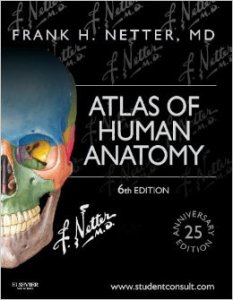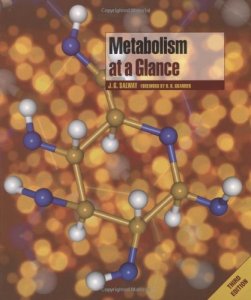Read All About It: Basic Science Books for Medical School
by Lorien E. Menhennett
Note: This post is at the request of one of my readers, who asked me to share what books I plan to use in my first year of medical school. I will update as the year goes by to talk about what I actually used. But here’s the plan …
 During undergrad, each new semester meant heading to the school bookstore, dropping a few hundred dollars, and lugging a giant stack of heavy textbooks back to my dorm or apartment.
During undergrad, each new semester meant heading to the school bookstore, dropping a few hundred dollars, and lugging a giant stack of heavy textbooks back to my dorm or apartment.
Things have changed. First, I’m in medical school now, not undergrad. In medical school, the prevailing wisdom is that you wait for your second year classmates to tell you what you really need before buying any books. Second, the trend across the publishing world is to use eBooks on your laptop or iPad rather than giant hardback tomes. And many medical schools – Cornell included – offer access to a selection of these eBooks through the school’s library. Cornell’s top-of-the-line resources mean that I have access to a LOT of eBooks this way, so I anticipate not having to buy many titles at all. Another bonus of these eBook offerings, which are usually accessed through an institutional subscription to part of a publisher’s catalog, is that in addition to the books there are related videos and self-assessments.
I do have a list of books I plan to use as necessary, most of which I can access as eBooks. This list was developed with the help of a dear friend, Dr. Hoffheimer, who is now a third year internal medicine resident in the Detroit area. I thumbed through the books she had used, and selected those that seemed to best fit my learning style. Most of these are not traditional textbooks, but review-style books, offering a bigger picture of the concepts rather than excessive minutiae. I have these bookmarked in my web browser, ready to go.
 In terms of the basic sciences, I found I preferred the Lippincott Williams & Wilkins series Lippincott’s Illustrated Reviews. From what I’ve seen so far (I’ve spent some time with the biochemistry title), the LIR series does a good job of giving you an overview, while also providing enough detail – but not so much that it’s overwhelming. These eBooks also offer online self-assessment, video/audio components, and a print feature (great for reading offline, if you print to PDF and throw it on the iPad). I have bookmarked the following through the LWW Health Library website. I’ve linked the titles to their Amazon.com pages if you’d like to read more about them or see customer reviews.
In terms of the basic sciences, I found I preferred the Lippincott Williams & Wilkins series Lippincott’s Illustrated Reviews. From what I’ve seen so far (I’ve spent some time with the biochemistry title), the LIR series does a good job of giving you an overview, while also providing enough detail – but not so much that it’s overwhelming. These eBooks also offer online self-assessment, video/audio components, and a print feature (great for reading offline, if you print to PDF and throw it on the iPad). I have bookmarked the following through the LWW Health Library website. I’ve linked the titles to their Amazon.com pages if you’d like to read more about them or see customer reviews.
- Lippincott’s Illustrated Reviews: Biochemistry
- Lippincott’s Illustrated Reviews: Cell and Molecular Biology
- Lippincott’s Illustrated Reviews: Immunology
- Lippincott’s Illustrated Reviews: Microbiology
- Lippincott’s Illustrated Reviews: Pharmacology
- Lippincott’s Illustrated Reviews: Physiology
 From Elsevier, I bookmarked:
From Elsevier, I bookmarked:
From McGraw-Hill, I bookmarked three titles that I haven’t ever flipped through, but looked promising. What I like about these is that there are interactive self-assessments for each, with USMLE-style questions. So even if I don’t use the books, I’ll likely use the test prep component.
 I did buy four books in advance, titles I felt confident I’d need, were worth the price, and I wanted as tangible objects instead of eBooks.
I did buy four books in advance, titles I felt confident I’d need, were worth the price, and I wanted as tangible objects instead of eBooks.
- First Aid for the USMLE Step 1: Highly recommended by people I trust. And I know I’ll need to start doing USMLE-style questions pretty much right off the bat.
- Neuroanatomy in Clinical Context: An Atlas of Structures, Sections, Systems, and Syndromes: Neuroanatomy has a reputation for being a tough block, and this book looks amazing. I do have access to this as an eBook, but there are some writing components that made me want to buy it in print.
- Metabolism at a Glance: This large-format book puts all the pieces of metabolism (Krebs cycle etc.) together in an integrated way, rather than looking at them separately.
- How the Immune System Works: This title presents a high-level view of the immune system, which should be great to have before I dive into my medical school block. I felt I needed this background since I’ve never taken an immunology course.
How many of these titles I use remains to be seen. But I felt it was important to have them bookmarked ahead of time so that if I get to a topic where I need more information, I have a trustworthy source to go to – and by “trustworthy” I don’t mean Wikipedia.
Thanks to Dr. Hoffheimer for her help in developing this list. And thanks to Varia for prompting the post.
Thank you very much, Lorien! Truly great information. Will be looking forward to your comments as the year progresses.
LikeLike
You’re very welcome. So many people have helped me along the way, and I wouldn’t have gotten this far without them. I want to do the same. We’re all in this together, right?!
LikeLike